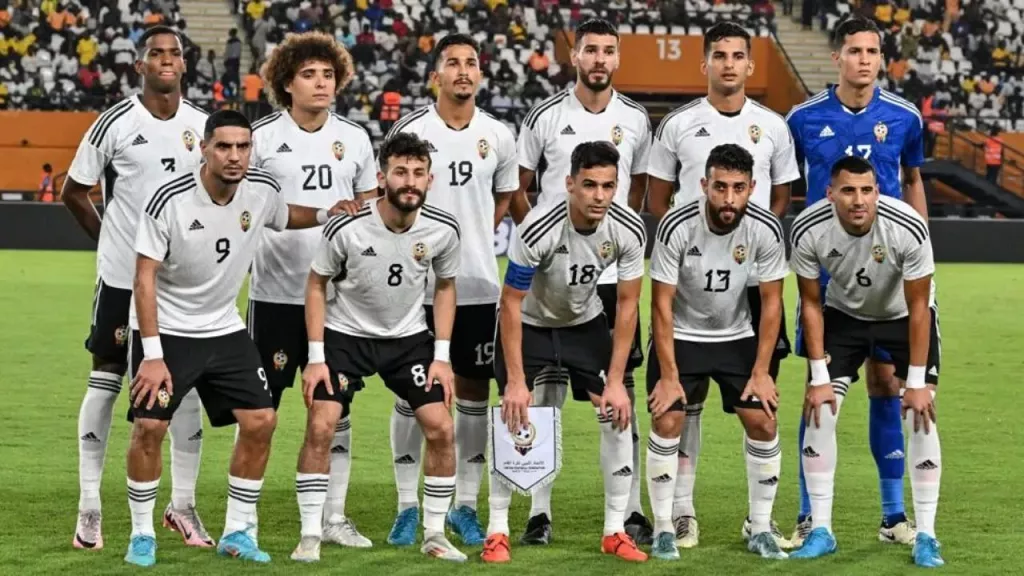Libyan Football Federation to challenge sanctions following cancelled match against Nigeria
3 min read

The Libyan Football Federation (LFF) is gearing up to take legal action in response to the sanctions imposed after their Africa Cup of Nations (AFCON) qualifier against Nigeria was abruptly canceled. The match, originally set for October 15, was called off when Nigeria’s Super Eagles boycotted the game, having been stranded overnight at an airport due to a flight diversion.
Tensions had been mounting between the two nations leading up to the match. Following the cancellation, the Confederation of African Football (CAF) awarded Nigeria a 3-0 victory and levied a $50,000 (£38,500) fine against the LFF, a decision that has sparked significant controversy.
Abdunnaser Ahmed, the acting president of the LFF, voiced his concerns about the ruling, arguing that “match points cannot be awarded in this way.” He emphasized that this situation sets a troubling precedent in African football. “Whoever refrains from playing before any match is canceled should be considered a loser,” Ahmed stated, underscoring his belief that the situation was mishandled.
This decision poses a serious threat to Libya’s chances of qualifying for the tournament. They now face the daunting task of needing to win their remaining two matches in Group D while hoping that both Benin and Rwanda fail to secure any points.
Ahmed confirmed that the LFF is prepared to appeal to the Court of Arbitration for Sport (CAS) if necessary, asserting, “We believe our cause is just. We will not give up our right.”
In contrast, Nigeria’s captain, William Troost-Ekong, welcomed the CAF decision as “justice.” He noted that the Super Eagles’ flight was diverted despite the pilot alerting authorities about low fuel levels, a factor that contributed to their decision to boycott the match. The team was sent to Al Abraq, located approximately 230 kilometers (143 miles) from Benghazi, where they arrived on October 13 but found no LFF representatives waiting for them.
Players reported being left without food, Wi-Fi, or accommodations, ultimately leading them to return to Nigeria the day before the scheduled match. This lack of support during a critical time further exacerbated the already tense situation.
Adding to the complexities, Libya had raised complaints regarding the treatment of their squad during a previous encounter in Nigeria on October 11, which Nigeria won 1-0. In light of these issues, CAF intervened and canceled the North African match. An investigation revealed that Libya had violated multiple regulations concerning match conduct and security for visiting teams, placing further scrutiny on the LFF.
Ahmed criticized CAF for what he perceived as an inaccurate assessment of the circumstances, attributing the flight diversion to “technical and logistical reasons related to air navigation.” His comments highlight the ongoing frustrations felt by the LFF regarding CAF’s management of the situation.
Nigeria’s Foreign Minister, Yusuf Tuggar, described the entire situation as “most unfortunate,” noting the complications that arise from Libya’s divided political landscape. The lack of diplomatic representation for one of Libya’s administrations in Nigeria has added another layer of difficulty in navigating the issues surrounding the match cancellations.
As a result of the sanctions, Nigeria now finds itself just one victory away from qualifying for the 2025 Africa Cup of Nations in Morocco. This places additional pressure on Libya, which must now contend with the ramifications of their situation while attempting to regroup and focus on their remaining matches.
The unfolding drama surrounding the canceled AFCON qualifier reflects broader issues within African football, including the challenges of ensuring fair treatment and maintaining the integrity of the sport amid political and logistical difficulties. As the LFF prepares to challenge the sanctions, both teams are left to grapple with the consequences of this unfortunate incident, with the stakes higher than ever as they aim for a spot in the upcoming tournament. The outcome of this conflict may not only impact their immediate futures but also set important precedents for the governance of football on the continent.